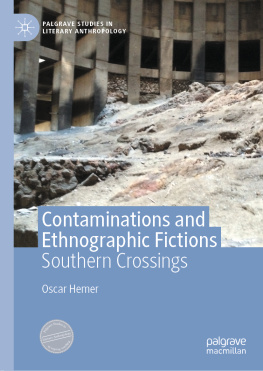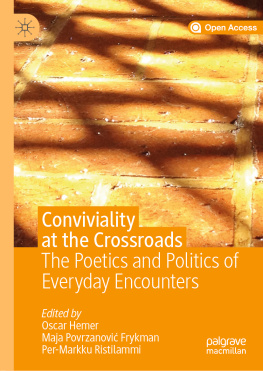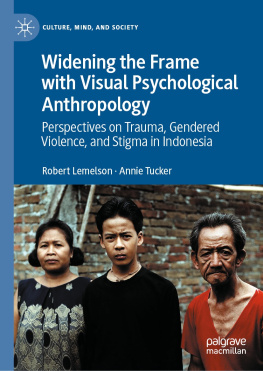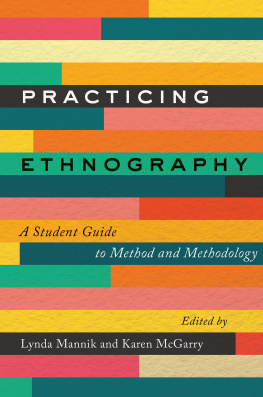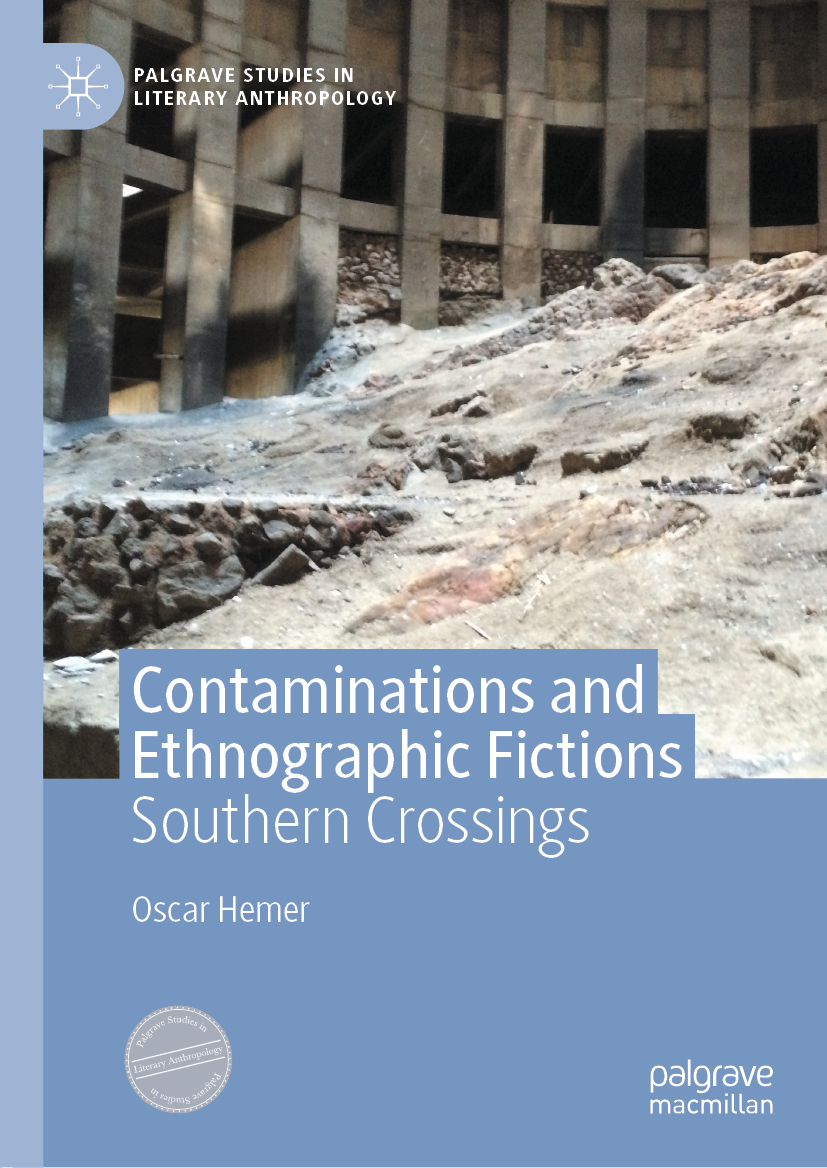Palgrave Studies in Literary Anthropology
Series Editors
Deborah Reed-Danahay
Department of Anthropology, The State University of New York at Buffalo, Buffalo, NY, USA
Helena Wulff
Department of Social Anthropology, Stockholm University, Stockholm, Sweden
This series explores new ethnographic objects and emerging genres of writing at the intersection of literary and anthropological studies. Books in this series are grounded in ethnographic perspectives and the broader cross-cultural lens that anthropology brings to the study of reading and writing. The series explores the ethnography of fiction, ethnographic fiction, narrative ethnography, creative nonfiction, memoir, autoethnography, and the connections between travel literature and ethnographic writing.
More information about this series at http://www.palgrave.com/gp/series/15120
Oscar Hemer
Contaminations and Ethnographic Fictions
Southern Crossings
Oscar Hemer
School of Arts and Communication, K3, Malm University, Malm, Sweden
Palgrave Studies in Literary Anthropology
ISBN 978-3-030-34924-0 e-ISBN 978-3-030-34925-7
https://doi.org/10.1007/978-3-030-34925-7
The Editor(s) (if applicable) and The Author(s), under exclusive license to Springer Nature Switzerland AG 2020
This work is subject to copyright. All rights are solely and exclusively licensed by the Publisher, whether the whole or part of the material is concerned, specifically the rights of translation, reprinting, reuse of illustrations, recitation, broadcasting, reproduction on microfilms or in any other physical way, and transmission or information storage and retrieval, electronic adaptation, computer software, or by similar or dissimilar methodology now known or hereafter developed.
The use of general descriptive names, registered names, trademarks, service marks, etc. in this publication does not imply, even in the absence of a specific statement, that such names are exempt from the relevant protective laws and regulations and therefore free for general use.
The publisher, the authors and the editors are safe to assume that the advice and information in this book are believed to be true and accurate at the date of publication. Neither the publisher nor the authors or the editors give a warranty, expressed or implied, with respect to the material contained herein or for any errors or omissions that may have been made. The publisher remains neutral with regard to jurisdictional claims in published maps and institutional affiliations.
Cover illustration: Ponte City, 2016: The Core (photo by the author)
This Palgrave Macmillan imprint is published by the registered company Springer Nature Switzerland AG
The registered company address is: Gewerbestrasse 11, 6330 Cham, Switzerland
For Thomas and Beata
Series Editors Preface
Palgrave Studies in Literary Anthropologypublishes explorations of new ethnographic objects and emerging genres of writing at the intersection of literary and anthropological studies. Books in this series are grounded in ethnographic perspectives and the broader cross-cultural lens that anthropology brings to the study of reading and writing. By introducing work that applies an anthropological approach to literature, whether drawing on ethnography or other materials in relation to anthropological and literary theory, this series moves the conversation forward not only in literary anthropology, but also in general anthropology, literary studies, cultural studies, sociology, ethnographic writing and creative writing. The literary turn in anthropology and critical research on world literatures share a comparable sensibility regarding global perspectives.
Fiction and autobiography have connections to ethnography that underscore the idea of the author as ethnographer and the ethnographer as author. Literary works are frequently included in anthropological research and writing, as well as in studies that do not focus specifically on literature. Anthropologists take an interest in fiction and memoir set in their field locations, and produced by native writers, in order to further their insights into the cultures and contexts they research. Experimental genres in anthropology have benefitted from the style and structure of fiction and autoethnography, as well as by other expressive forms ranging from film and performance art to technology, especially the Internet and social media. There are renowned fiction writers who trained as anthropologists, but moved on to a literary career. Their anthropologically inspired work is a common sounding board in literary anthropology. In the endeavour to foster writing skills in different genres, there are now courses on ethnographic writing, anthropological writing genres, experimental writing and even creative writing taught by anthropologists. And increasingly, literary and reading communities are attracting anthropological attention, including an engagement with issues of how to reach a wider audience.
Palgrave Studies in Literary Anthropologypublishes scholarship on the ethnography of fiction and other writing genres, the connections between travel literature and ethnographic writing, and Internet writing. It also publishes creative work such as ethnographic fiction, narrative ethnography, creative non-fiction, memoir and autoethnography. Books in the series include monographs and edited collections, as well as shorter works that appear as Palgrave Pivots. This series aims to reach a broad audience among scholars, students and a general readership.
Deborah Reed-Danahay and Helena Wulff
Co-Editors, Palgrave Studies in Literary Anthropology
Advisory Board
Ruth Behar, University of Michigan
Don Brenneis, University of California, Santa Cruz
Regina Bendix, University of Gttingen
Mary Gallagher, University College Dublin
Kirin Narayan, Australian National University
Nigel Rapport, University of St Andrews
Ato Quayson, University of Toronto
Julia Watson, Ohio State University
Acknowledgements
This book is the end result of a project I embarked on as a fellow at Stellenbosch Institute for Advanced Study (STIAS) in the beginning of 2015. It was formulated within the Institutes longer-term theme Crossing Borders and had on the outset the provisional double title Writing Across Borders/In Praise of Impurity. I am immensely grateful to STIAS for offering me the privilege to be part of their creative environment for three full months, during which I enjoyed the inspiration from a wide range of fellow researchers who happened to share this crucial moment in recent South African history with me. Whether they like it or not, many of them appear with their forenames in the text, and I wish to especially thank Simon Bekker, Michael Blake, Denis-Constant Martin, Francis Nyamnjoh, Elmi Muller, Anne Phillips and Mats Rosengren for providing input of specific relevance for my own research. Although not a STIAS fellow at the time, but previously and later, Aryan Kaganof has also been a very important reference point and is subsequently a recurrent protagonist in my text. Susan Hayden, my former student and proof-reader, is likewise in that category of long-term relationships.

